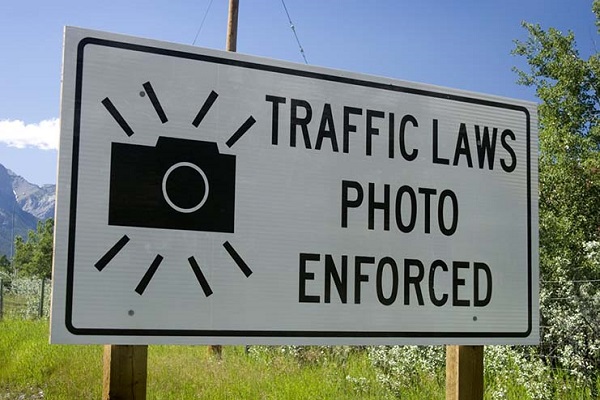Alberta
Watch: Alberta COVID-19 cases double to 14

Seven new cases of COVID-19 confirmed
Alberta’s chief medical officer of health has announced seven new cases of novel coronavirus, officially known as COVID-19.
There are now 14 confirmed cases in Alberta, and all of them are travel-related.
These new cases of COVID-19 are all recovering in isolation at home with support from public health officials. One previously announced individual is currently receiving treatment in hospital. This person had a pre-existing chronic condition.
“While new cases are always concerning, Albertans should know that increases are expected as we work aggressively to limit the virus’s spread. We are all in this together. Every one of us has a role to play in protecting our families, friends and fellow Canadians. The precautionary measures you take now will help shield yourself and others, especially seniors and people with pre-existing medical conditions, from this virus.”
“Alberta is well-prepared for this challenge, and our system continues to respond quickly and effectively to every confirmed case. I want to thank all of our health professionals for their continued dedication. We will ensure that our public health professionals and the health system overall have the resources they need to protect Albertans, now and in the days ahead.”
Three of the new cases are from the Edmonton zone. They involve a male in his seventies and a female in her sixties who had travelled together, and a female in her thirties who had also recently travelled outside of Canada.
The other four new cases are from the Calgary zone. They involve a male in his fifties, two females in their thirties and a female in her forties.
The travellers had returned from visiting a range of countries, including France, the Netherlands, Egypt, Iran, Taiwan, Germany, Malaysia, Trinidad and Tobago, Panama, the Philippines and the United States. Several of the cases visited more than one country on their trip. One individual was also on the same MS Braemar cruise ship in the Caribbean as a case announced March 9.
As part of Alberta’s COVID-19 response, public health teams are already identifying and notifying anyone who came into close contact with these individuals. All close contacts displaying symptoms are being tested. Even those not displaying symptoms will self-isolate for 14 days to prevent any possible spread if they were to display symptoms in the future.
The risk level in Alberta is currently low, though this may change in the coming weeks.
Additional recommended public health measures
- All Albertans should practise good hygiene, such as frequent handwashing, and should stay home if feeling ill.
- All travellers returning from outside Canada should monitor their health for 14 days after coming home. If they develop symptoms, they should self-isolate and call Health Link 811.
- All travellers returning from Iran or Hubei Province, China, should self-isolate until 14 days have passed since their visit. If they develop symptoms, they should call Health Link 811.
- Anyone experiencing symptoms of COVID-19 such as fever or cough linked to recent travel or other health concerns should contact Health Link 811.
- Anyone who is feeling ill, even if they have not travelled, should stay home and not visit hospitals, long-term care facilities or supportive living accommodations. Albertans who are not experiencing symptoms can continue to visit loved ones in these facilities.
- Anyone organizing group events should undertake a risk assessment considering who may attend, the nature of the event, and what is happening in their local community.
- All municipalities, businesses and other organizations should continue business continuity planning to prepare critical operations for any potential interruption.
Visit alberta.ca/COVID19 for additional information, guidance and resources.
Alberta
Big win for Alberta and Canada: Statement from Premier Smith

Premier Danielle Smith issued the following statement on the April 2, 2025 U.S. tariff announcement:
“Today was an important win for Canada and Alberta, as it appears the United States has decided to uphold the majority of the free trade agreement (CUSMA) between our two nations. It also appears this will continue to be the case until after the Canadian federal election has concluded and the newly elected Canadian government is able to renegotiate CUSMA with the U.S. administration.
“This is precisely what I have been advocating for from the U.S. administration for months.
“It means that the majority of goods sold into the United States from Canada will have no tariffs applied to them, including zero per cent tariffs on energy, minerals, agricultural products, uranium, seafood, potash and host of other Canadian goods.
“There is still work to be done, of course. Unfortunately, tariffs previously announced by the United States on Canadian automobiles, steel and aluminum have not been removed. The efforts of premiers and the federal government should therefore shift towards removing or significantly reducing these remaining tariffs as we go forward and ensuring affected workers across Canada are generously supported until the situation is resolved.
“I again call on all involved in our national advocacy efforts to focus on diplomacy and persuasion while avoiding unnecessary escalation. Clearly, this strategy has been the most effective to this point.
“As it appears the worst of this tariff dispute is behind us (though there is still work to be done), it is my sincere hope that we, as Canadians, can abandon the disastrous policies that have made Canada vulnerable to and overly dependent on the United States, fast-track national resource corridors, get out of the way of provincial resource development and turn our country into an independent economic juggernaut and energy superpower.”
Alberta
Energy sector will fuel Alberta economy and Canada’s exports for many years to come

From the Fraser Institute
By any measure, Alberta is an energy powerhouse—within Canada, but also on a global scale. In 2023, it produced 85 per cent of Canada’s oil and three-fifths of the country’s natural gas. Most of Canada’s oil reserves are in Alberta, along with a majority of natural gas reserves. Alberta is the beating heart of the Canadian energy economy. And energy, in turn, accounts for one-quarter of Canada’s international exports.
Consider some key facts about the province’s energy landscape, as noted in the Alberta Energy Regulator’s (AER) 2023 annual report. Oil and natural gas production continued to rise (on a volume basis) in 2023, on the heels of steady increases over the preceding half decade. However, the dollar value of Alberta’s oil and gas production fell in 2023, as the surging prices recorded in 2022 following Russia’s invasion of Ukraine retreated. Capital spending in the province’s energy sector reached $30 billion in 2023, making it the leading driver of private-sector investment. And completion of the Trans Mountain pipeline expansion project has opened new offshore export avenues for Canada’s oil industry and should boost Alberta’s energy production and exports going forward.
In a world striving to address climate change, Alberta’s hydrocarbon-heavy energy sector faces challenges. At some point, the world may start to consume less oil and, later, less natural gas (in absolute terms). But such “peak” consumption hasn’t arrived yet, nor does it appear imminent. While the demand for certain refined petroleum products is trending down in some advanced economies, particularly in Europe, we should take a broader global perspective when assessing energy demand and supply trends.
Looking at the worldwide picture, Goldman Sachs’ 2024 global energy forecast predicts that “oil usage will increase through 2034” thanks to strong demand in emerging markets and growing production of petrochemicals that depend on oil as the principal feedstock. Global demand for natural gas (including LNG) will also continue to increase, particularly since natural gas is the least carbon-intensive fossil fuel and more of it is being traded in the form of liquefied natural gas (LNG).
Against this backdrop, there are reasons to be optimistic about the prospects for Alberta’s energy sector, particularly if the federal government dials back some of the economically destructive energy and climate policies adopted by the last government. According to the AER’s “base case” forecast, overall energy output will expand over the next 10 years. Oilsands output is projected to grow modestly; natural gas production will also rise, in part due to greater demand for Alberta’s upstream gas from LNG operators in British Columbia.
The AER’s forecast also points to a positive trajectory for capital spending across the province’s energy sector. The agency sees annual investment rising from almost $30 billion to $40 billion by 2033. Most of this takes place in the oil and gas industry, but “emerging” energy resources and projects aimed at climate mitigation are expected to represent a bigger slice of energy-related capital spending going forward.
Like many other oil and gas producing jurisdictions, Alberta must navigate the bumpy journey to a lower-carbon future. But the world is set to remain dependent on fossil fuels for decades to come. This suggests the energy sector will continue to underpin not only the Alberta economy but also Canada’s export portfolio for the foreseeable future.
-

 2025 Federal Election1 day ago
2025 Federal Election1 day agoWEF video shows Mark Carney pushing financial ‘revolution’ based on ‘net zero’ goals
-

 Break The Needle2 days ago
Break The Needle2 days agoWhy psychedelic therapy is stuck in the waiting room
-

 2025 Federal Election2 days ago
2025 Federal Election2 days agoThree cheers for Poilievre’s alcohol tax cut
-

 2025 Federal Election2 days ago
2025 Federal Election2 days agoMORE OF THE SAME: Mark Carney Admits He Will Not Repeal the Liberal’s Bill C-69 – The ‘No Pipelines’ Bill
-

 2025 Federal Election2 days ago
2025 Federal Election2 days ago‘Coordinated and Alarming’: Allegations of Chinese Voter Suppression in 2021 Race That Flipped Toronto Riding to Liberals and Paul Chiang
-

 2025 Federal Election1 day ago
2025 Federal Election1 day ago‘I’m Cautiously Optimistic’: Doug Ford Strongly Recommends Canada ‘Not To Retaliate’ Against Trump’s Tariffs
-

 Automotive2 days ago
Automotive2 days agoTrump Must Act to Halt the Tesla Terror Campaign
-

 Business1 day ago
Business1 day agoCanada may escape the worst as Trump declares America’s economic independence with Liberation Day tariffs










